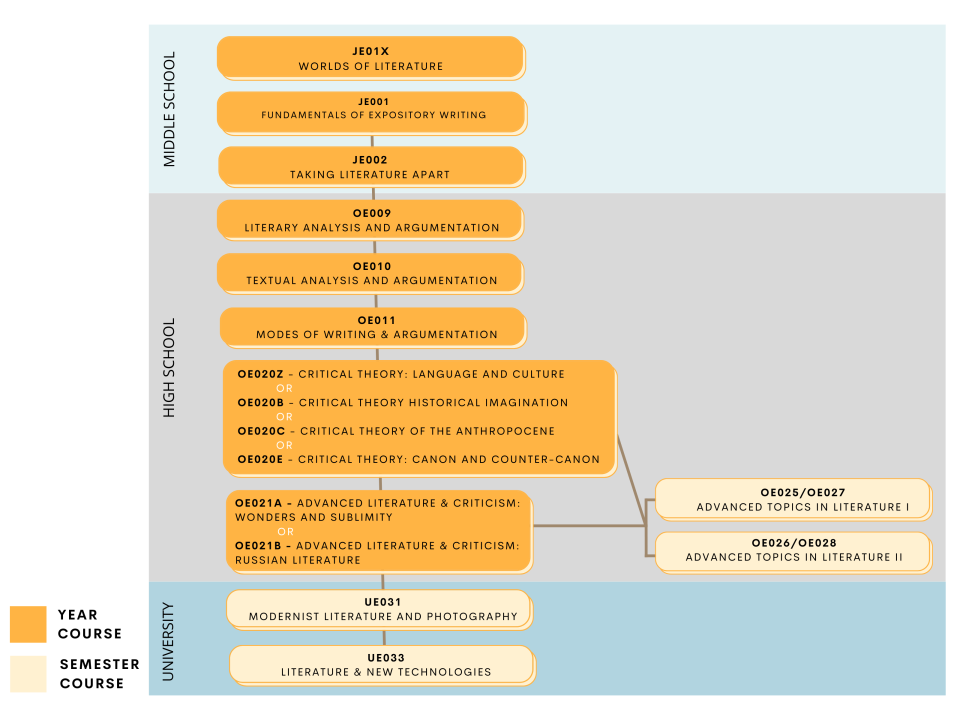"Critical Theory of the Anthropocene" aligns with the course goals and major assignments of Critical Theory courses at OHS but with a particular focus on the environmental humanities. We'll investigate the complex relationships between humans and the natural world as well as the language that various groups use to describe such relationships. For example, how are notions of wilderness and civilization, international waters, or even "nature" itself grounded in deeper rhetorical and cultural histories? How do literary texts, scientific narratives, and popular media represent environmental crisis and/or imagine alternate, sustainable futures? Drawing on novels, poetry, and documentary film, we'll move across literature, law, and Indigenous studies in order evaluate how rhetorical and critical frameworks shape our understanding of social and ecological systems on a global scale. By the end of the course, students will write college-level essays that demonstrate creative and critical thinking in various modes of persuasive argument. Featured writers include William Apess, Henry David Thoreau, Zitkala-Sa, John Muir, and Terry Tempest Williams. Additional materials include Leslie Marmon Silko's novel Ceremony and N. Scott Momaday's illustrated text The Way to Rainy Mountain, plus critical theory by Lisa Brooks, Michel Foucault, Wai-Chee Dimock, and Elizabeth DeLoughrey
Course Number
OE020C
Level
High School
Semester
Year-long
Credit per Semester
5.00
Subject
Prerequisites
Modes of Writing and Argumentation (OE011) or placement assessment
